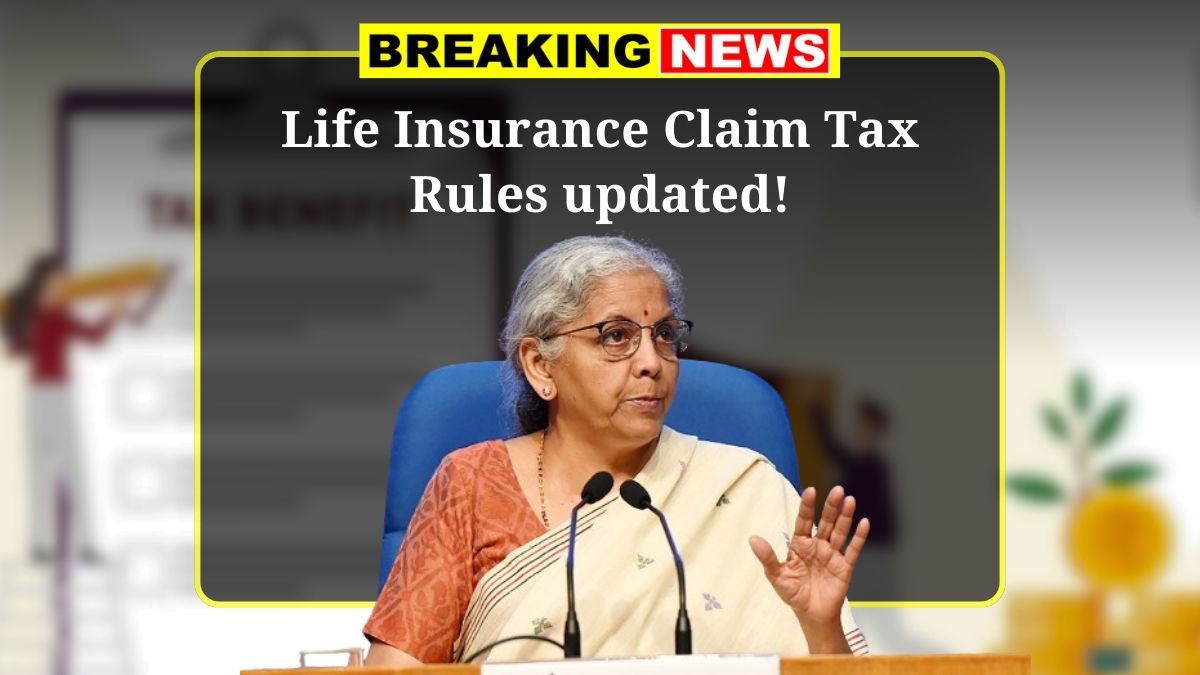Life Insurance Claim Tax Benefits – Losing a loved one is emotionally heartbreaking, and at such a time, the life insurance claim amount that comes your way is not just financial support but also a big emotional cushion. However, one common doubt people have is whether this amount is completely tax-free or not. If you ever have to face such a situation, it’s important to know what the income tax rules actually say.
When is Life Insurance Claim Tax-Free?
As per Section 10(10D) of the Income Tax Act, any amount received by the nominee after the death of the insured person is completely exempt from tax. Whether it’s ₹25 lakh, ₹50 lakh or ₹1 crore, you don’t need to pay any income tax on this money. This brings major relief to families who are already going through a tough time emotionally and financially. So, if the claim is being made due to the death of the policyholder, you can rest assured—it’s completely tax-free.
When Does Tax Benefit Not Apply on Insurance Claims?
Though most death claims are tax-free, there are some exceptions. In certain situations, the exemption under Section 10(10D) does not apply. Knowing these exceptions can save you from unexpected TDS deductions and tax complications later.
Let’s start with the Keyman Insurance Policy. If a company takes a policy on an important employee’s life, and later the insurance amount is paid to the company, it’s not considered a personal death benefit. In this case, the claim amount is taxable because it was a corporate policy, not a personal one.
Policies purchased between 1 April 2003 and 31 March 2012 also have a catch. If the premium paid in any of those years was more than 20% of the sum assured, then the maturity or death claim could be taxed. This was mainly to prevent misuse by High Net Worth Individuals (HNIs), who used to invest more and insure less just to earn tax-free returns.
For policies bought after 1 April 2012, the premium should not be more than 10% of the sum assured. If it exceeds that, and the policy is surrendered or matures (and it’s not a death claim), the amount received could be taxed. So, only genuine life protection plans that follow this 10% rule qualify for tax-free claims.
Is TDS Deducted on Life Insurance Claims?
In general, no TDS is deducted if the claim is made due to the death of the policyholder. But if the insurance company suspects that the policy doesn’t qualify under Section 10(10D), or if the claimant hasn’t provided PAN, then 5% TDS might be deducted. It’s rare in death claims, but still, to be safe, make sure your PAN details are updated with the insurance company to avoid any TDS issues.
What About Term Insurance Plans – Are They Tax-Free?
Yes, term insurance claims are 100% tax-free. Since term plans only pay out in the event of the policyholder’s death and offer no maturity benefit, they clearly fall under Section 10(10D). The nominee receives the full sum assured, and there’s no tax deduction or liability involved. This is one of the main reasons why term insurance is considered a pure and effective protection plan.
Does the Nominee’s Relationship Matter?
Many people wonder whether the nominee’s relationship with the policyholder makes a difference. The answer is no. Whether the nominee is the spouse, child, parent, or even a friend—as long as the claim is due to the policyholder’s death, the payout remains tax-free. The tax benefit under Section 10(10D) applies regardless of who the nominee is.
Should You Mention It in Your Income Tax Return?
Even though the claim amount is tax-free, it’s a good practice to mention it under “Exempt Income” in your ITR. This adds transparency to your financial records and avoids future inquiries from the Income Tax Department. Also, make sure to collect all relevant documents, claim statements, and official correspondence from the insurance company. These can come in handy later if you’re ever asked to justify the claim source.
Disclaimer
This article is meant for general awareness purposes only and should not be considered as financial or legal advice. Tax laws may change, and it’s always best to consult a tax professional or financial advisor before making any decisions related to life insurance claims and taxation.




